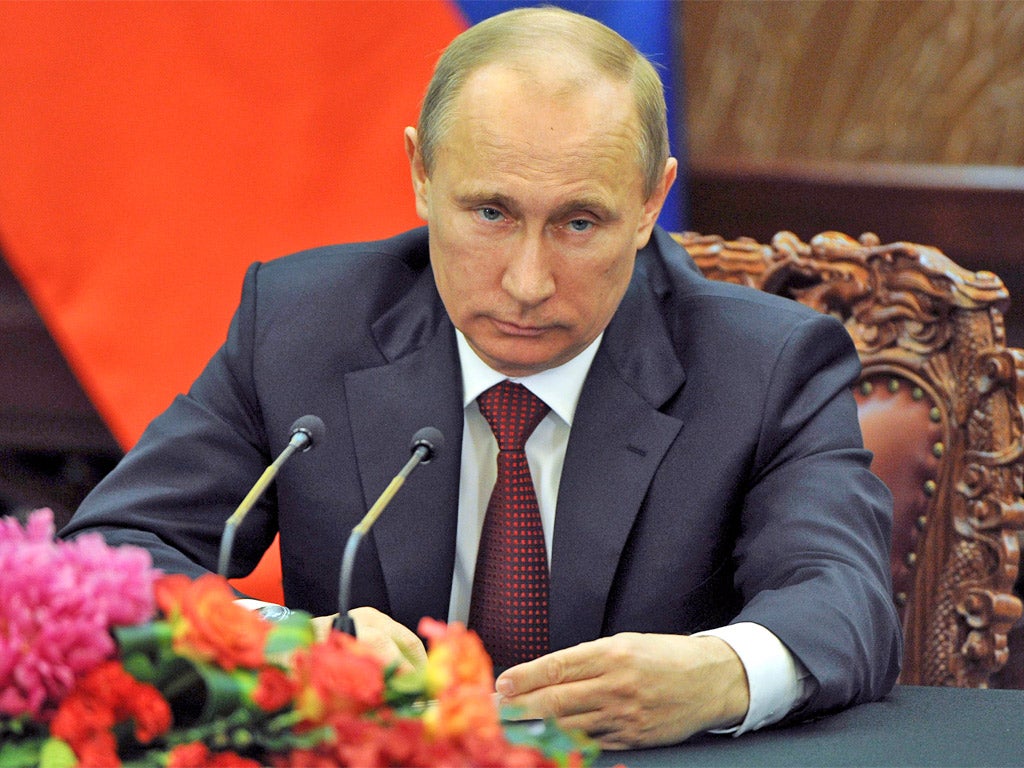Russia and China refuse to step up the pressure on Assad regime
The bloodshed continues, and hopes for UN peace plan fade as Syria bars Western ambassadors

Your support helps us to tell the story
From reproductive rights to climate change to Big Tech, The Independent is on the ground when the story is developing. Whether it's investigating the financials of Elon Musk's pro-Trump PAC or producing our latest documentary, 'The A Word', which shines a light on the American women fighting for reproductive rights, we know how important it is to parse out the facts from the messaging.
At such a critical moment in US history, we need reporters on the ground. Your donation allows us to keep sending journalists to speak to both sides of the story.
The Independent is trusted by Americans across the entire political spectrum. And unlike many other quality news outlets, we choose not to lock Americans out of our reporting and analysis with paywalls. We believe quality journalism should be available to everyone, paid for by those who can afford it.
Your support makes all the difference.Russia and China refused yesterday to harden their stance against the regime of Bashar al-Assad, even as the Syrian government threw out a handful of Western diplomats in another sign that the UN-brokered plan to end 14 months of bloodshed was disintegrating.
During a visit by President Vladimir Putin to Beijing, Russia and China called for all sides in the conflict to observe the Kofi Annan peace plan, which has so far failed to stop the violence. Western leaders suggest that real change in Syria can come only if Mr Assad steps down, but Moscow has rejected calls for regime change and insists that Mr Annan's plan is the only way forward.
"Both sides oppose external intervention in Syria and oppose regime change by force," said a Chinese Foreign Ministry spokesman after Mr Putin met President Hu Jintao. "We believe ultimately the Syrian issue should be properly addressed through consultation among different parties in Syria." Mr Putin said: "Russia and China advocate for an equitable international order in which all nations work to deal with the dangers."
Traditionally, Russia and China oppose sanctions and are strongly against armed intervention. There was anger in Moscow that the UN resolution on preventing civilian casualties in Libya was turned into the basis for a military intervention, and despite the international outrage over Syria, Russia is determined to avoid a repeat. But Moscow and Beijing's stance has hampered Western and Gulf nations who are pressing for tougher measures in the wake of 10,000 civilian deaths in Syria.
Damascus announced yesterday that 17 ambassadors and other diplomats from Western nations and Turkey would not be welcome in the country. Most had already been withdrawn. The Foreign Office said it withdrew its diplomats from Damascus in March. Britain kicked out Syria's top diplomat in London last week in response to the Houla massacre, in which more than 100 died, including women and children.
Syria's move yesterday was seen as diplomatic retaliation. It was a further blow to Mr Annan's blueprint for peace, and Saudi Arabia's foreign minister said yesterday that Gulf states are pessimistic that the plan can work.
"We have begun to lose hope in the possibility of reaching a solution... within this framework," Prince Saud al-Faisal told reporters in Jeddah. "The UN Security Council is responsible for its duties... to take the appropriate measures to ensure the immediate application of the joint envoy's [plan], including resorting to Article 7 in the charter," he added, referring to a measure that could authorise the use of force.
Syrian rebels say they are no longer bound by the Annan plan's ceasefire, as the government has failed to keep its side of the deal. Heavy fighting was reported in Latakia province yesterday.
Join our commenting forum
Join thought-provoking conversations, follow other Independent readers and see their replies
Comments